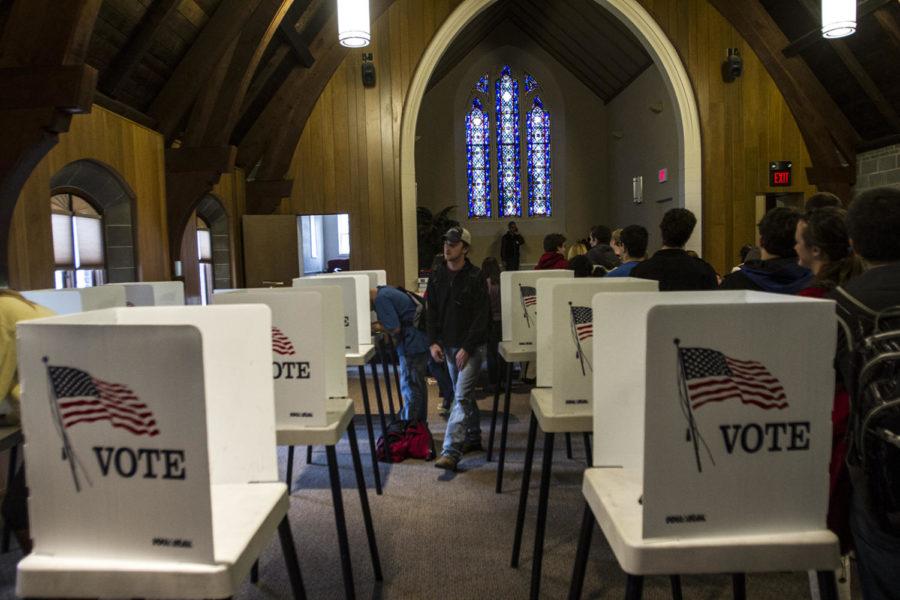Editorial: Electoral college needs rethinking, misstates voters
Photo: Yanhua Huang/ Iowa State Daily
Ten more booths are set up in the south portion of the Memorial Lutheran Church for voters to mark down their decisions.
April 22, 2014
Every four years, we as a nation come together and decide who will be our president, letting our collective votes choose who will lead our nation. Except that isn’t how it always works. In several cases, our duly elected president did not garner the most votes.
For example, when George W. Bush won the office in 2000, he actually lost the popular vote to Al Gore by more than 500,000 votes. No matter what you think of George Bush or Al Gore, a system that elects a candidate despite coming up half a million votes shorter than his opponent has some serious problems.
Bush won, nonetheless, because our presidential system actually relies upon an electoral college. In our electoral college, each state is allotted a number of electors equivalent to the number of federal representatives and senators they have in Washington D.C., which receives three electors itself.
When we vote for a presidential candidate, we actually vote for special electors, who have already pledged their vote. In all states except Maine and Nebraska, all of the electoral college votes go to whatever candidate was chosen by the most voters. In Maine and Nebraska, the various congressional districts are allowed to vote independently.
This system of election was designed to give more power to the states as states, and represents a compromise between the way representation is decided in the two houses of Congress — purely by population for the House of Representatives and by equal representation for each state in the Senate.
By giving each state a minimum three votes, the electoral college actually makes the votes of those of us in smaller states like Iowa more powerful than the votes of those in larger states. Beyond this, the electoral college gives additional power — or at least additional attention — to so-called swing states, or states that could reasonably vote for either major party’s candidate.
For many years, there have been grumblings about the electoral college and the way it can skew our presidential election. Lately, a movement called the National Popular Vote Compact has been gaining momentum with ten states — most recently including New York and its 29 electoral college votes — signing on.
The compact assures voters that states which sign will give their electoral college votes to whichever candidate wins the national popular vote.
However, this compact will not go into effect until states representing 270 electoral votes, the absolute majority required for a candidate to win an election, have signed on. With New York, the current vote total is 165, more than a few short of the stated goal.
Our founders certainly had reasons for creating the system they did. Back when our Constitution was written on fresh paper, we were not a nation of people as much as we are now. We were a nation of states, and those states had their own interests. That is why the Senate was originally elected by state legislatures, and that is why constitutional amendments can be proposed by a convention of state legislatures.
With a majority of Americans saying they would vote “for” doing away with the electoral college, according to a 2013 Gallup poll, there is significant opposition to the system. It would seem that it only persists because it gives some of us an unfair advantage.
With modern technology and education, every American should have an equal say in who our president will be. With an ever-increasing focus on swing-states — and less and less attention being paid to those in so-called “safe” states — we can all see something isn’t right in our presidential elections. As it happens, that something is the electoral college.

















